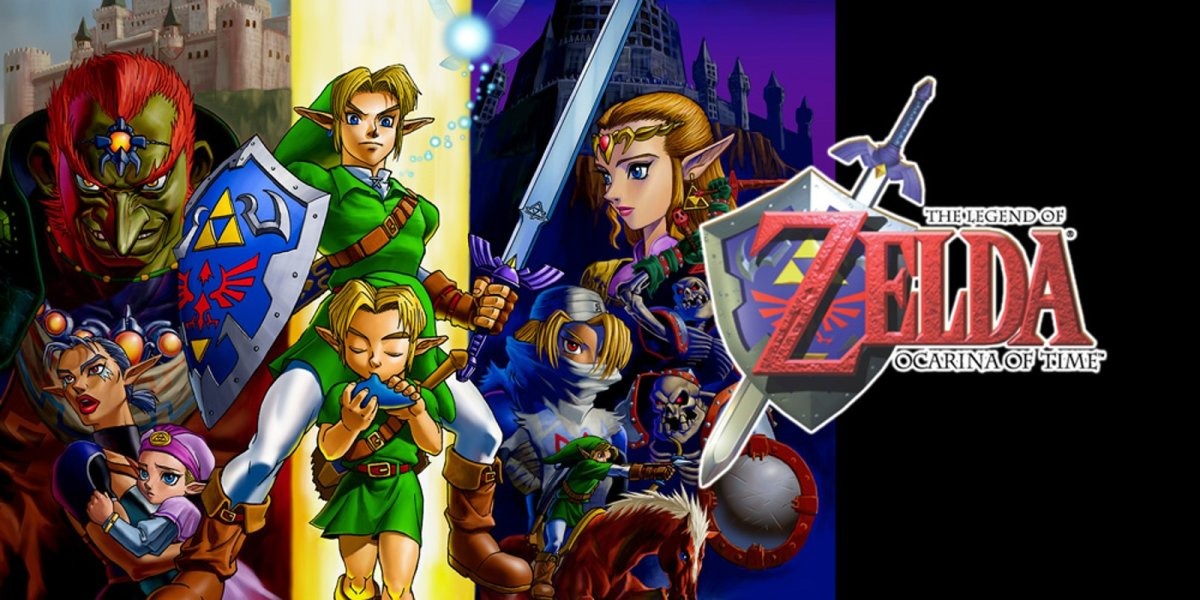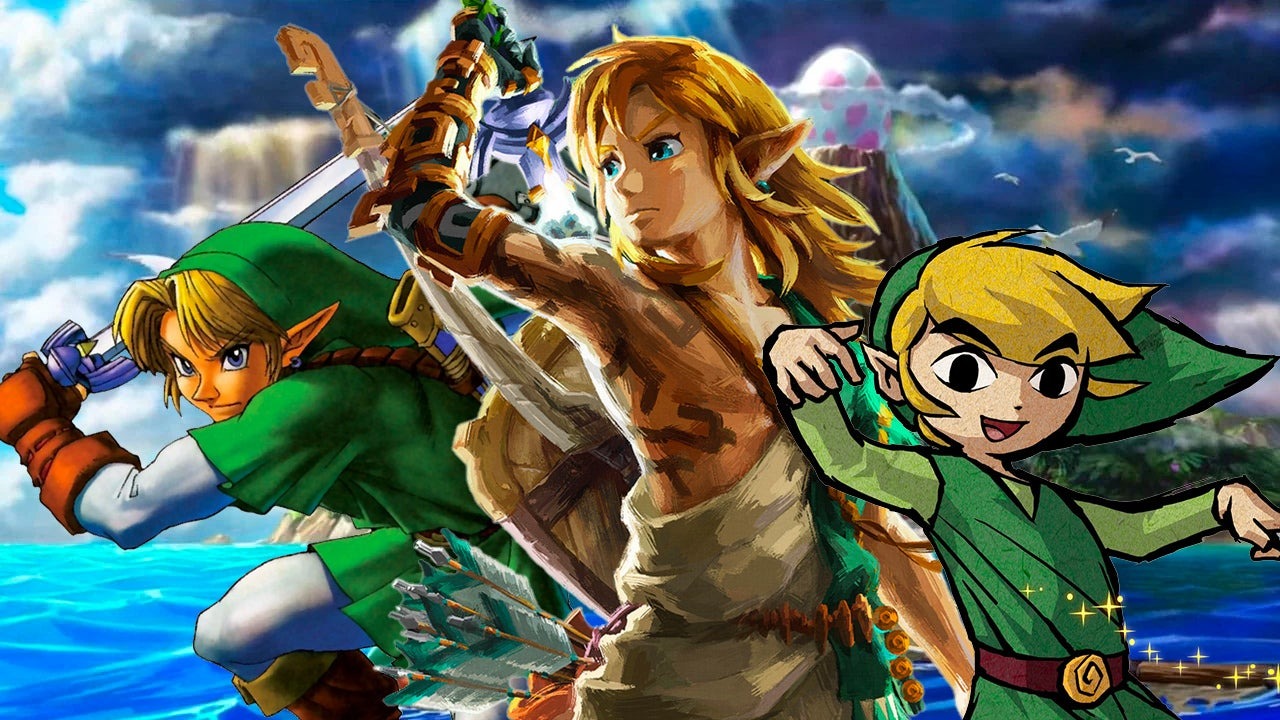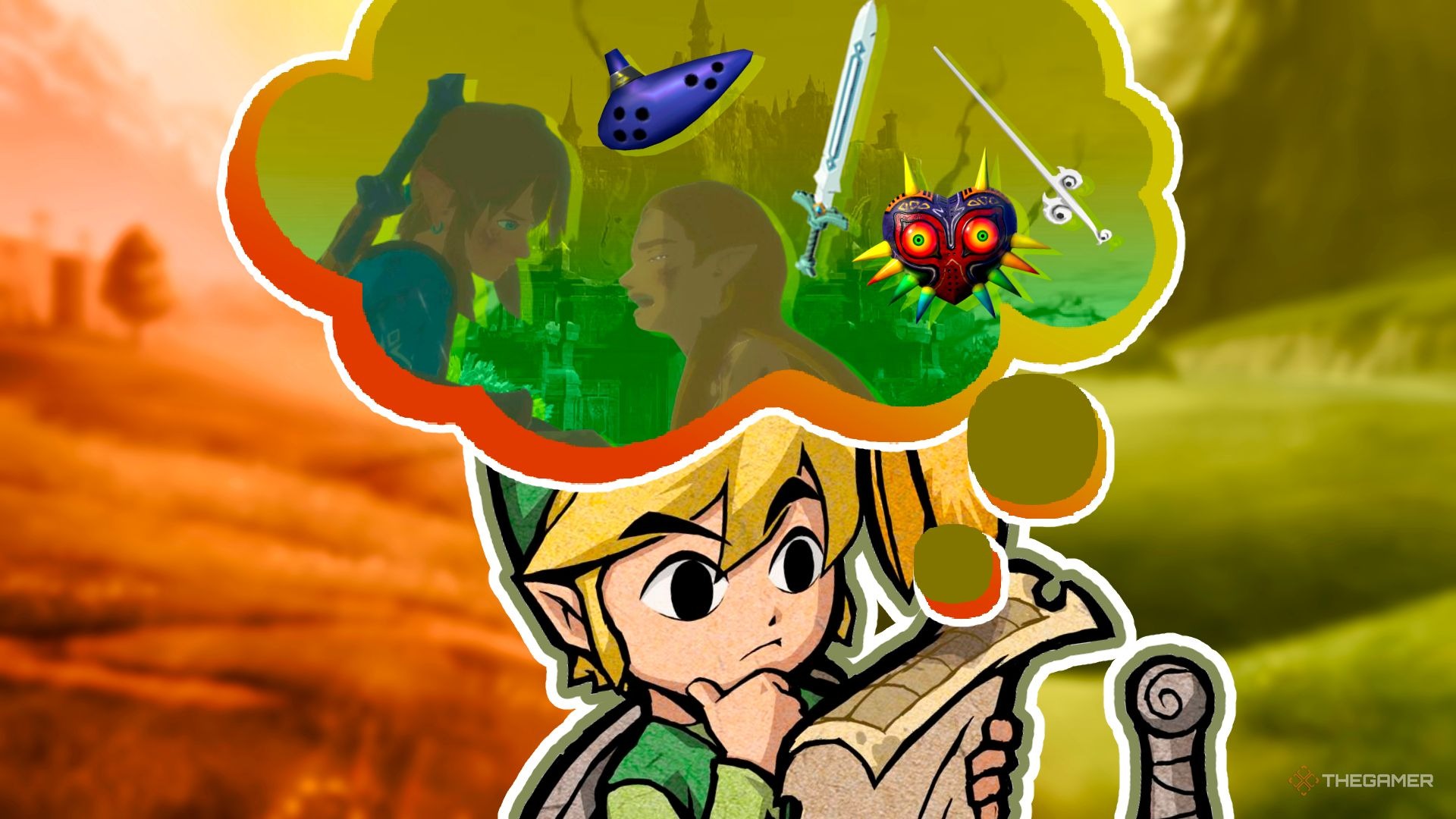A Masterclass in Naming: Ranking The Legend of Zelda Titles by Their Relevance to the Game
Popular Now
 Sonic the Hedgehog™ Classic
Sonic the Hedgehog™ Classic
 Stumble Guys
Stumble Guys
 Geometry Dash
Geometry Dash
 Genshin Impact
Genshin Impact
 Roblox
Roblox
 NBA 2K24
NBA 2K24
 PUBG Mobile
PUBG Mobile
 Among Us
Among Us
 Black Myth: Wukong
Black Myth: Wukong
 Grand Theft Auto V
Grand Theft Auto V 
The Legend of Zelda franchise is celebrated for its sprawling worlds, ingenious puzzles, and timeless storytelling. But beyond the gameplay, the titles themselves often serve as a tantalizing hint of the adventure that awaits. A well-crafted title can be a perfect reflection of the game’s central theme, a key mechanic, or a pivotal plot point. A poorly chosen one, however, can be a missed opportunity. Let’s rank some of the most iconic Zelda titles based on how well they actually reflect the game they represent.
 Tier 1: The Perfect Synthesis of Name and Game
Tier 1: The Perfect Synthesis of Name and Game
These titles are not just labels; they are a mission statement. They perfectly capture the core identity of the game in just a few words, often revealing the main hook or a major plot twist without giving everything away.
- The Legend of Zelda: Tears of the Kingdom
. This title is a masterpiece of subtlety and meaning. The “Tears” refer to the tears of the Sages, a central item you collect to restore the kingdom. It also alludes to the sorrow and tragic history of Hyrule, a land brought to its knees by Calamity Ganon, and the emotional story of Princess Zelda’s own sacrifice. The name is rich with layered meaning, from the literal game mechanic to the deep, emotional core of the narrative.
- The Legend of Zelda: Ocarina of Time
. The Ocarina is not just an item; it’s the very foundation of the game’s mechanics and plot. This title instantly tells you that a musical instrument is at the heart of the adventure and, more importantly, that time travel is a key element. Every major plot beat, from Link’s seven-year slumber to the exploration of different timelines, is directly tied to the Ocarina. The title is a brilliant and concise summary of the entire experience.
- The Legend of Zelda: Majora’s Mask
. Simple, direct, and incredibly effective. The mask is not just a piece of equipment; it’s the primary antagonist and the driving force behind the game’s dark and unsettling atmosphere. The title immediately clues you in on the central object of power that threatens the world of Termina, a world where masks and their transformative powers are everything. It perfectly captures the game’s unique and slightly sinister identity.
- The Legend of Zelda: Link’s Awakening
. The most brilliant title in the series for its double meaning. On the surface, it refers to Link literally waking up on Koholint Island after a shipwreck. However, as the game’s surreal story unfolds, you realize that Link’s ultimate goal is to “awaken” the Wind Fish from its dream, which will cause the entire island to disappear. The title is a perfect, spoiler-free hint at the game’s mind-bending and emotional conclusion.
 Tier 2: Good, but Not Groundbreaking
Tier 2: Good, but Not Groundbreaking
These titles effectively describe a key component of the game, but they don’t quite reach the level of the perfect synthesis. They’re good, solid names that get the job done.
- The Legend of Zelda: The Wind Waker
. The Wind Waker baton is a critical tool for navigating the Great Sea, and the title accurately reflects its importance. It’s a fun and whimsical name that fits the game’s vibrant, cel-shaded art style. However, the title only refers to a single item and doesn’t fully capture the epic scope of sailing across a vast, submerged Hyrule.
- The Legend of Zelda: Twilight Princess
. The name hints at the Twilight Realm and Midna, the titular princess of this corrupted world. The contrast between light and dark, a major theme in the game, is well-represented. While it does a good job of setting the tone, the title can feel a bit generic and doesn’t capture the full breadth of the game’s story or its wolf mechanic.
- The Legend of Zelda: A Link Between Worlds
. This title is a direct and clever reference to the game’s central mechanic: traveling between the worlds of Hyrule and its dark mirror, Lorule, by merging into a 2D painting. It’s a great pun on Link’s name and an excellent description of the core gameplay loop. However, its effectiveness relies entirely on the player understanding the pun.
Tier 3: The Vague and Misleading
These titles are either too generic or actively confusing, failing to capture the true essence of the game. They might be memorable, but they don’t do the game justice.
- The Legend of Zelda: Skyward Sword
. While you do raise your sword toward the sky to charge it, the title feels more like a generic fantasy name than a reflection of the game’s plot. The game is an origin story for the Master Sword and the entire Hyrule timeline, and a name that reflects this “beginning” would have been more fitting than one focused on a single, albeit important, action.
- The Legend of Zelda: Breath of the Wild
. This title is incredibly poetic and beautiful, but it’s also incredibly vague. The “breath of the wild” could refer to many things—the open-world nature, the untamed wilderness of Hyrule, or the naturalistic feel of the game. While it perfectly captures the *feeling* of the game, it tells you nothing about the central quest, the plot, or the game’s mechanics. Thematically resonant, but mechanically irrelevant.
- The Legend of Zelda: A Link to the Past
. Despite its legendary status, this is arguably one of the most misleading titles. The original Japanese title, Triforce of the Gods, was a more direct reflection of the plot. “A Link to the Past” was a localization choice, a pun on the hero’s name, to signify that the game was a prequel to the first two titles. There is no time travel in the game, making the title a source of confusion for new players who might expect a narrative element that simply isn’t there.








